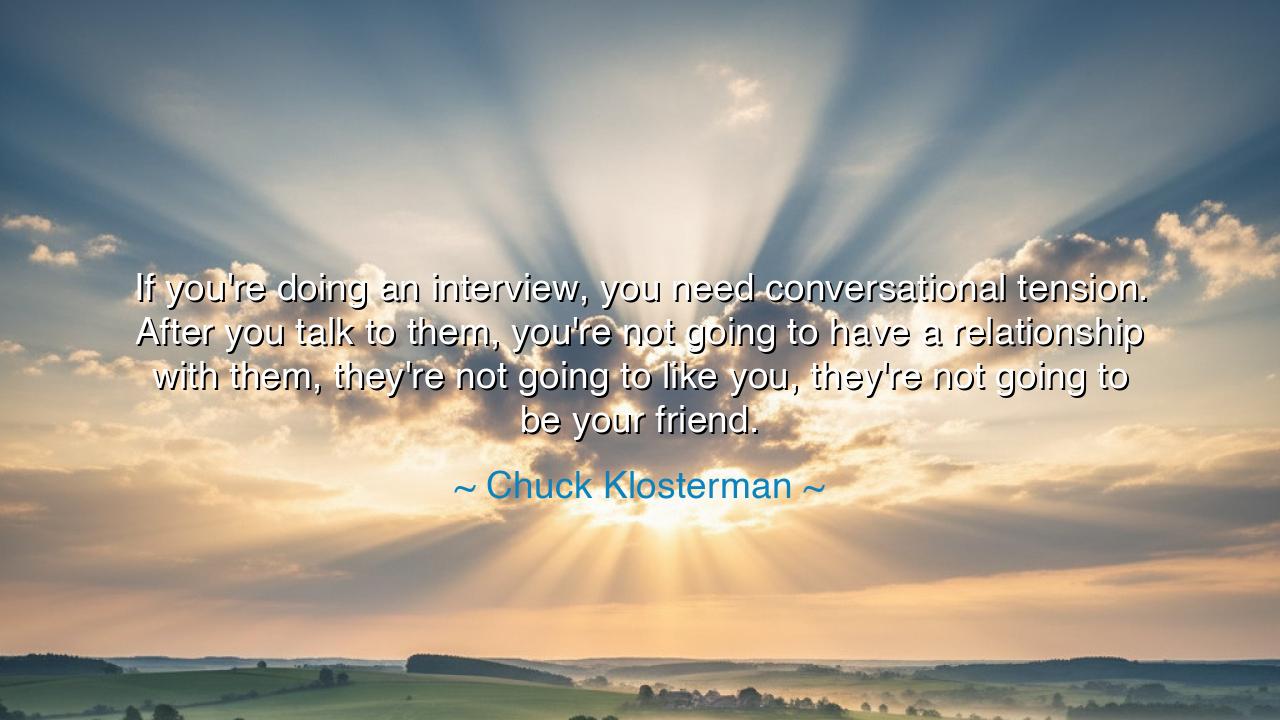
If you're doing an interview, you need conversational tension.
If you're doing an interview, you need conversational tension. After you talk to them, you're not going to have a relationship with them, they're not going to like you, they're not going to be your friend.






Hear the discerning words of Chuck Klosterman, who spoke thus: “If you are doing an interview, you need conversational tension. After you speak with them, you will not have a relationship with them, they will not like you, they will not be your friend.” These words cut to the heart of truth-seeking, for they reveal the cost of honest inquiry. The path of the questioner is not paved with comfort, but with challenge, for only through tension can deeper truths emerge.
In the ancient courts of kings, wise scribes and philosophers would question rulers and warriors, not to flatter them, but to pierce the veil of appearances. This sacred tension was a forge in which ideas were tested and lies burned away. If the seeker of truth sought only harmony and friendship, their words would become soft and hollow, serving vanity rather than wisdom. Thus, Klosterman reminds us that the interview is not a feast of pleasantries, but a battlefield of thoughts where clarity is won through courage.
The absence of lasting relationship is not a failure, but a sign of purpose fulfilled. The questioner’s task is not to be liked, nor to win the heart of their subject, but to uncover what is hidden and offer it to the world. As the hunter releases the arrow, so too must the interviewer release attachment, knowing that their service is to truth, not to companionship.
Yet there is a quiet sorrow in this role. To forgo friendship is to walk a solitary path, misunderstood by many. But such is often the burden of those who bear the torch of knowledge. Future generations must understand this: the light of truth is born not from comfort, but from discomfort, from the friction of honest dialogue.
Therefore, let the wise embrace conversational tension as a sacred tool. Speak not to be cherished, but to reveal. For when the veil is lifted and understanding deepens, even at the cost of liking or friendship, the world is brought one step closer to wisdom.






AAdministratorAdministrator
Welcome, honored guests. Please leave a comment, we will respond soon